TABLE 14-16
What are the factors that determine the acceleration time (in sec.) from 0 to 60 miles per hour of a car? Data on the following variables for 171 different vehicle models were collected:
Accel Time: Acceleration time in sec.
Cargo Vol: Cargo volume in cu. ft.
HP: Horsepower
MPG: Miles per gallon
SUV: 1 if the vehicle model is an SUV with Coupe as the base when SUV and Sedan are both 0
Sedan: 1 if the vehicle model is a sedan with Coupe as the base when SUV and Sedan are both 0
The regression results using acceleration time as the dependent variable and the remaining variables as the independent variables are presented below.
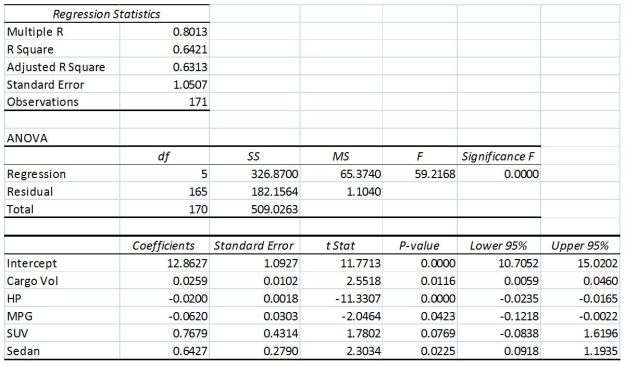
The various residual plots are as shown below.
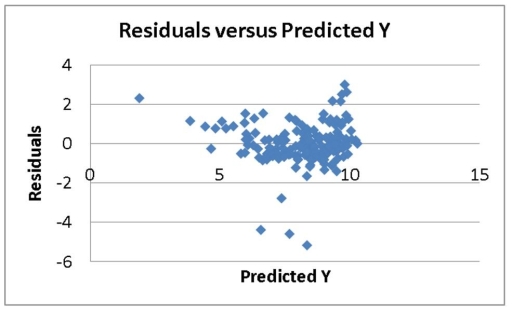
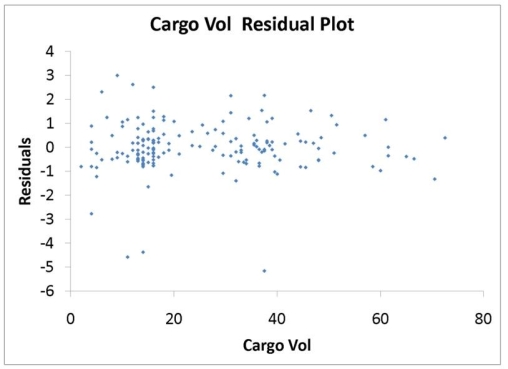
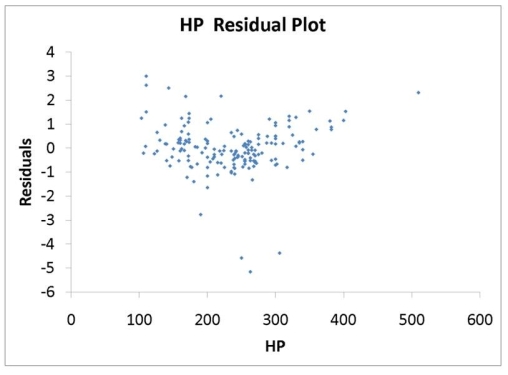
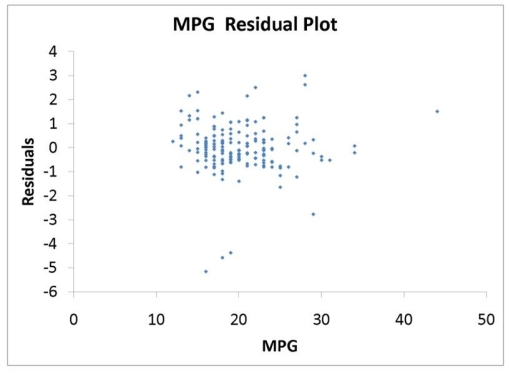
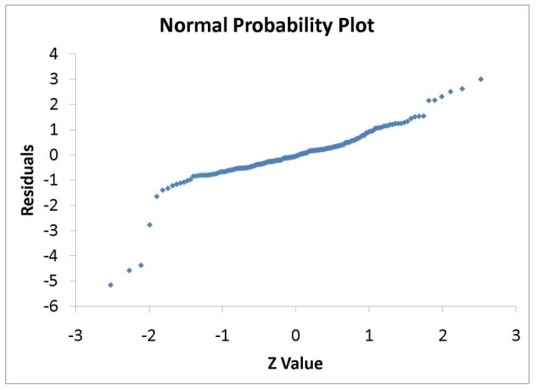

-Referring to 14-16, what is the p-value of the test statistic to determine whether HP makes a significant contribution to the regression model in the presence of the other independent variables at a 5% level of significance?
Definitions:
Brain Wave Patterns
The electrical activity in the brain, classified into categories like alpha, beta, delta, and theta waves, related to different states of consciousness.
Subpersonalities
Different facets or aspects of an individual's personality, each with its own set of behaviors and perceptions.
Coconscious Relationship
A psychological condition or relationship where two or more consciousnesses are aware of each other's thoughts and actions.
Dissociative Identity Disorder
A complex psychological condition characterized by the presence of two or more distinct personality states or identities within a single individual.
Q13: A regression had the following results: SST
Q78: Referring to Table 15-6, what is the
Q84: Referring to Table 13-11, the homoscedasticity of
Q88: Given a data set with 15 yearly
Q96: Referring to Table 15-6, the variable X₆
Q111: The overall upward or downward pattern of
Q179: Referring to Table 14-3, what is the
Q217: Referring to Table 14-15, which of the
Q263: Referring to Table 14-17 Model 1, the
Q287: Referring to Table 14-17 and using both